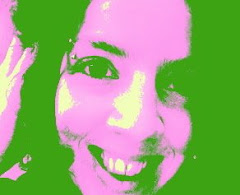Many avid readers or Fight Club-obsessed teenage boys will go see an author they like when he or she comes to town, but how many people go to readings they are not interested in? Perhaps it is the combination of being an alumna of both daycare and liberal arts that makes my job as an author host a nice fit. Recently Rob Neyer of ESPN.com blogger fame read from his latest book Big Book of Baseball Legends. That’s not actually true. He read the first line of the preface* and then shot the shit with two dozen** baseball fans for an hour and half.***
I don’t really care about sports. Sure, I pretended to like football in high school because there was nothing else to do, but really I liked being with my friends and concession stand hot dogs. But Neyer led a genuinely impressive chat. The general trivia didn’t mean anything to me, nor the legends themselves, but I was able to sift through to find the real heart of the conversation which is part of what fascinates these baseballers. Ultimately, while Neyer is testing the truth of baseball legends, it really doesn’t matter if they are true or not. Whether Babe Ruth called his shot or it was just a freakishly lucky gesture at some rude opposing fans, the legend of him calling his shot is still a part of baseball history. Even if it isn’t fact, it is still something that must be addressed in a book such as Neyer’s or can be referenced as common knowledge in movies like The Sandlot.
And baseball seems to have more legends than other sports because it has its own sort of oral tradition. Not many people saw what happened in baseball games in the 1920s, 30s, 40s. It’s easier to elaborate when you don’t have the nightly news to contradict you. Now we have instant replay and YouTube and Tivo and we don’t tell elaborate lies to entertain ourselves. I don't think I will ever have the inkling to watch baseball on TV, but it does make me nostalgic for a time I was never a part of. What's left of an oral tradition in the day-to-day lives of people now? I hate to think it's gossip. Even the baseballers could only think of legends from decades ago. Nothing from last week's game. Nothing that could go down in history besides indisputable stats. And, honestly, what's the fun in truth if it can't be embellished?
By-gone sports stories made heros out of men. Today's embroidered stories make beautiful celebrities into trashy parents and drugged-out sluts. Will my granddaughter ever be sad she wasn't a part of such a time? I remember dressing like Lou Gehrig for a report I did in third grade. Who will my hypothetical daughter dress like for her third grade project? Brittany Spears?
Sure, Neyer's talk didn't turn me into a die-hard baseball fan. I mean, really I just turned the whole subject into something I was interested in: story telling. But now I see baseball and even tabloids in a whole new light. Just like daycare taught me to like peas in tatter-tot casserole and my liberal arts education taught me how to dissect articles on global warming like a Bronte novel, looking at a sport through the highlights that are probably not true, still makes it real, just beautiful too.
* “This book is not for everyone.” I kid you not.
**Including two women, one of which I swore was his grandma.
***Not altogether surprising since he broke the record for online chatting about baseball last Monday: 12 hours, 1 minute. Again, no kidding.
* “This book is not for everyone.” I kid you not.
**Including two women, one of which I swore was his grandma.
***Not altogether surprising since he broke the record for online chatting about baseball last Monday: 12 hours, 1 minute. Again, no kidding.




1 comment:
Daycare taught me to like white bread with margarine spread thickly on it. Working at a daycare cured me of this pleasure.
Post a Comment